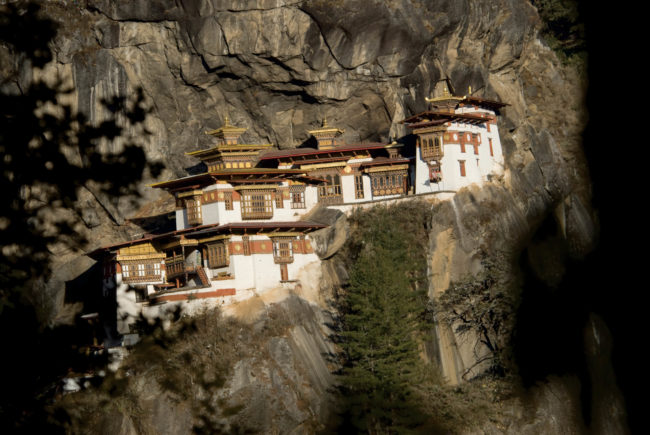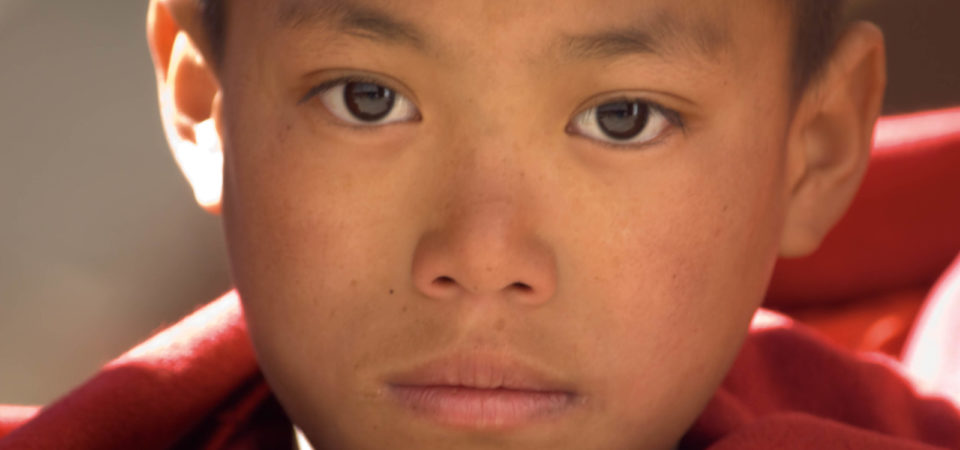Geoffrey Holland speaks with Michael Charles Tobias and Jane Gray Morrison about their latest book, The Theoretical Individual
GH: Is the human species still evolving? If so, is it possible that in response to the pressures we face in the early 21st century, that we can overcome ‘every man for himself’ and nurture a nascent aspect of our consciousness that is collective, and which favors kindness, tolerance, and a bias toward the common good?
MT/JM: Of course we are evolving: Not so much physically (although there are definite, if subtle morphological changes taking place across the human genetic landscape, and these have been well studied – quiet size changes in teeth and jaws, for example) but most assuredly in the conceptual realms. Certainly, for the last 30,000 or so years our evolution has occurred almost entirely within the world of introspection. There is no reason to doubt that the same is happening in every other species. Indeed, in various reptiles and avifauna we are seeing evolutionary change within the real-time of mere generations; even, ironically, among certain finches in the Galapagos. Early in this book we write, “Because we have no measurements or even baseline for consciousness, as such, our sudden journey does not comprise great thought, just thought; neither consistent virtue nor villainy, just a multitude of behaviors. We heed whatever compass reading is convenient, restlessly grappling with those semblances of order and invention our myriad compulsions have seized upon, from day to day, millennium by millennium.” The outcome of this roadmap with no map is the reality of potential. We show great potential as a species, because of the individuals who inspire, invent, and invalidate old grudges and missteps. These people form a community – and we all know, or perhaps belong to such communities throughout the human world. Again, the same is happening among other species. Every species. We may adduce that it has always been like this. Which means that this adventure is epic in scale because it includes every member of the biosphere, on an equal moral footing.

Favoring kindness and tolerance toward the common good, as you put it, is precisely what the biosphere keeps presenting to us as the most obvious way to paint a gorgeous landscape, raise loving children, honor one’s parents, siblings, friends and strangers. It is not only the best idea, but the only ideal worth assiduously advocating, in our opinion. The particulars by human perceived proxy, of evolution and molecular biology, are completely in sync with this ideal, every second of every day.
GH: You reference author George Steiner’s work on meaning and transcendence. He writes about learning anew to be human. Is that kind of ‘learning’ possible when humanity is caught up in an unprecedented swirl of chaos and uncertainty?
MT/JM: We think so. This is our hope; that nothing can interfere with a human being’s potential to learn, to reflect, to change. Throughout The Theoretical Individual, and in an earlier work entitled Anthrozoology: Embracing Co-Existence in the Anthropocene, we discuss what psychologists have come to understand as a person’s “readiness potential.” This pertains to those factors involved in the nearly 775,000 estimated choices/decisions a person makes during her/his lifetime. We also examine what we term “the reciprocity potential,” namely, those qualities of biophilia that are like neurons waiting to be fired; feelings which, at a mere touch, can be positively unleashed upon the world and are so, in all species and individuals relating to each other. The soul speaks when it is spoken to. These potentialities give rise to a massive field of harmonious growth and evolution throughout the biological world. They are the game-changers in terms of probability science. As we have said for years, evolution does not condemn or liberate us. Only our choices can do that.
GH: You have written, ‘We live ephemerally and wounded within that chasm that has separated our kind from all others.’ Humans have evolved since we left our hunter-gatherer origins with a compulsion to exploit the blessings of nature without any sense of consequence. Relentless exploitation is the highest way of being human according to the Bible, the Koran, and other brands of religious expression. Does the way forward for humans involve casting off this kind of destructive dogma in favor of a new ethic that focuses on reverence for nature and working collectively for the common good?
MT/JM: Religion, science, art, motherhood, fatherhood, brotherly love… all aspects of the human experience are fraught with, as Wordsworth gently established, a world too much with us, if that is possible. So rather than nailing certain dogmas into what are probably well-earned coffins, let us get past the dialectics, let go of so much rancor and lamentation, and move confidently into an urgent, real world, poised to do the pressing work, which is the re-affirmation of what humanity is capable of. Not simply predicated upon all those who have already suffered and died – though we must never forget their hallowed sacrifices; but a new and refreshing embrace-through-intention-and-action of that undoubted nobility of spirit which never wanes. These are almost embarrassing words because we all know them by heart, from every somber occasion, typically following another human massacre. But a new nature is something we believe in. It should be at the heart of all education. Ethics, morality plays, spiritual immersions will never cease to tempt us with the fascinating prospect of turning ideals into reality. The individual can do that – among every species. Not in the future, but today, tonight. The details are endlessly interesting, like the near-infinities within Jan Breughel the Elder’s many paradise paintings.
Such expressions invite deep consideration of what it will take to render utopia tenable. And there are uninvited judgement calls awaiting the task, because utopia has always meant so many things to so many vertebrates and invertebrates and others, typically bathed in skepticism. And that’s because for we humans, there are a few basic infrastructure necessities that continue to remain criminally unconsecrated. You can’t envision a utopia that lacks easy access to fresh drinking water, food, shelter, or human and all other animal and ecosystem rights. Forests and watersheds, mangroves and every biome possessing legal standing, in human terms. All that natural beauty and so-called “capital” was here innocently waiting for our kind, like all others, 330,000+ years ago. But we have not honored that gift of cooperation and sharing. Instead, we have struggled to diminish the equitable distribution of the Earth’s bounty. Why? Everyone has some version of the same answer: Because warfare and power grabs appear momentarily profitable; and profitability seduces those easily seduced by some kind of secret outside the seeming constraints of evolutionary fairness. Our hateful distractions – war, oppression, consumption of other species – are the shadows in human biology. Those with an eye towards darkness can find holocausts throughout all eco-dynamics on the planet. What the notion of a new (human) nature suggests, however, is the readily accessed paradigm of a natural positivism, long described, that takes its cues from biodiversity and acts out its cravings for love, for justice, for fellowship with a thoroughly tender and integral touch. Minimalism that doth sing its heart clear of all obstruction, even beneath the many Towers of Babel that maim clarity, and make of simple breath a politic gone dire. It needn’t be. Jain Digambara monks have set one sterling example of what is possible in a quasi-Utopian sense. A pragmatic conscience. From the Sanskrit, “parasparopagraho jivanam – interdependence of soul.” Read More
Michael Charles Tobias and Jane Gray Morrison are ecological philosophers and animal liberation activists who have worked for decades to help enrich our understanding of ecosystem dynamics and humanity’s ambiguous presence amid that great orchestra that is nature.
The Theoretical Individual is available in hardcover and ebook formats directly from Springer, or it can be found through Amazon.com, Google Play, and eBooks.com. It might also be available through your local bookstore or library.
The MAHB Blog is a venture of the Millennium Alliance for Humanity and the Biosphere. Questions should be directed to joan@mahbonline.org
MAHB Blog: mahb.stanford.edu/blog/new-nature/
The views and opinions expressed through the MAHB Website are those of the contributing authors and do not necessarily reflect an official position of the MAHB. The MAHB aims to share a range of perspectives and welcomes the discussions that they prompt.
